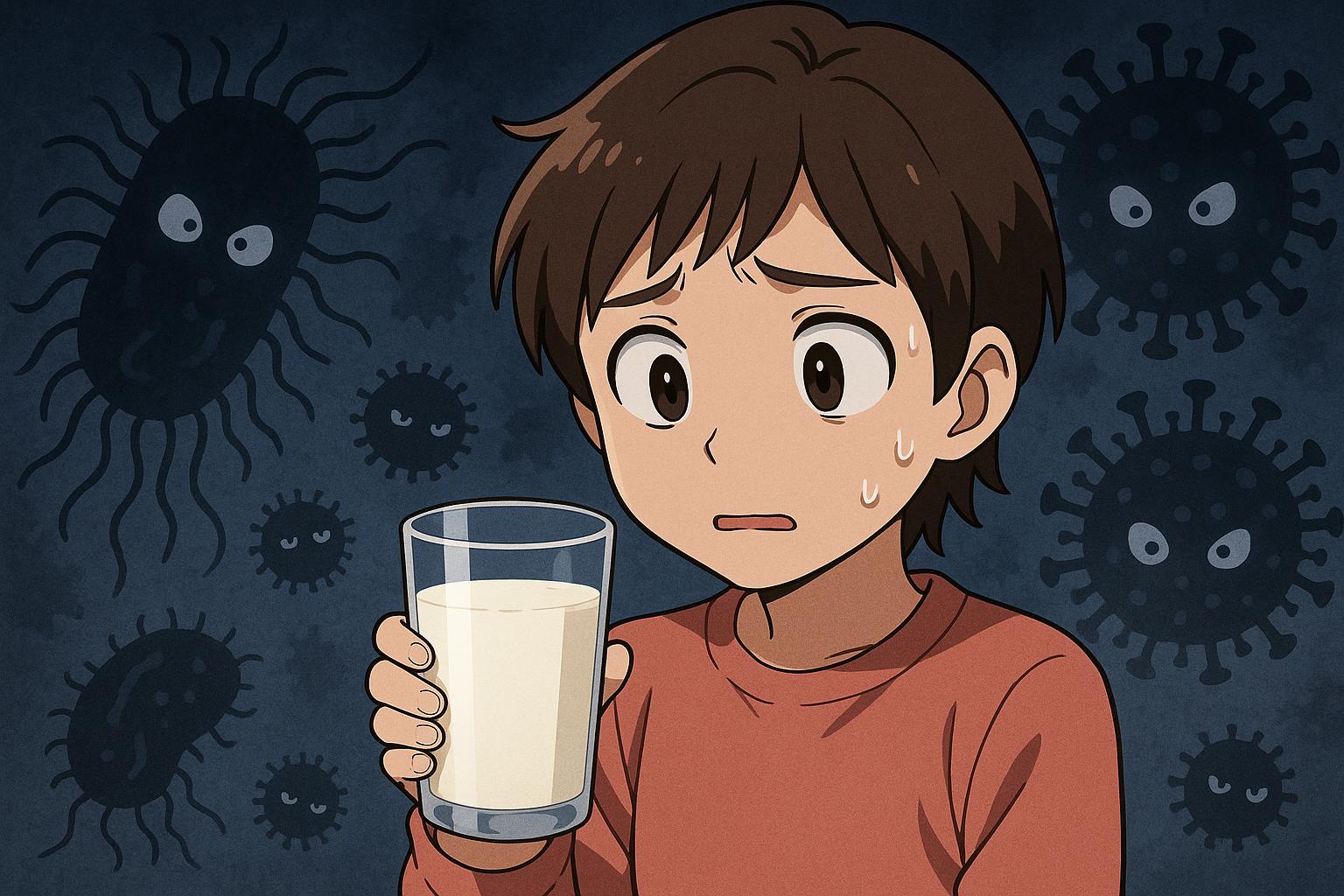The rise of raw milk consumption in Britain has sparked considerable concern, particularly as social media platforms like TikTok contribute to its growing popularity. The allure of raw milk, often marketed as a natural alternative to pasteurised options, is being scrutinised amid mounting evidence highlighting its potential health risks. Experts warn that consuming unpasteurised milk is significantly more hazardous, with a startling statistic indicating that it can lead to hospitalization 45 times more often than pasteurised milk.
Raw milk can harbour harmful pathogens including E. coli, salmonella, and even avian influenza (H5N1), which pose serious health threats, especially to vulnerable populations such as children. According to health authorities, the risks associated with drinking raw milk far outweigh any purported health benefits that proponents, including notable public figures, may advocate. Despite these warnings, the trend appears to be gaining traction, particularly among younger demographics who are influenced by online trends.
The debate surrounding the safety of raw milk has been exacerbated by claims from its advocates. They often promote it as a more nutritious or healthful option; however, these assertions have been met with skepticism from the scientific community. Research consistently underscores the efficacy of pasteurization in eliminating pathogens that can lead to severe illness. Yet, the allure of raw milk continues to be bolstered by anecdotal evidence and social media endorsements, making it a complex issue for public health messaging.
Public health agencies face significant challenges in conveying the risks associated with raw milk. Multiple reports have reiterated the dangers, highlighting that recent cases have led to health warnings and product recalls, particularly when contamination with the bird flu virus has been detected. The nuances of this debate are further complicated by the endorsements of prominent figures such as Robert F. Kennedy Jr. and former President Donald Trump, who have contributed to the legitimization of raw milk consumption among their followers.
The medical consensus remains clear: drinking raw milk carries considerable risks. Health professionals consistently stress the importance of pasteurisation as a critical step in ensuring dairy safety. As the trend continues to flourish, particularly on platforms like TikTok, the need for effective communication about these dangers becomes ever more urgent. It is crucial for consumers to be educated about the potential health implications associated with raw milk, as the charm of this trend may mask its significant health risks.
The enthusiasm surrounding raw milk consumption reflects broader trends in food choices, where the quest for "natural" options often overlooks safety concerns. As discussions about the validity of raw milk claims continue, the focus must remain on protecting public health through informed choices based on scientific evidence, rather than appealing narratives that inadequately address the underlying risks.
Reference Map
- (1), (3), (4), (6), (7)
- (2), (3), (5), (6)
- (2), (3), (4), (7)
- (3), (5), (6)
- (2), (6), (7)
- (1), (4), (6)
- (5), (6), (7)
Source: Noah Wire Services
